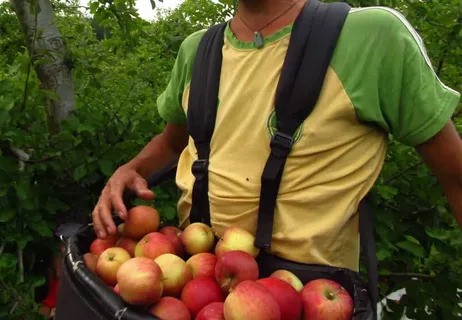Italy Fruit Picking Jobs
Italy’s sun-drenched orchards and vineyards are not just the backbone of its world-renowned cuisine—they’re also gateways to immersive cultural experiences and seasonal employment opportunities. From the lemon groves of Sicily to the vineyards of Tuscany, fruit picking jobs offer travelers and job-seekers a chance to earn money while living la dolce vita. With Italy’s agricultural sector contributing €61 billion annually and employing over 1 million people, this guide explores the ins and outs of fruit picking jobs, including roles, regions, pay, and practical tips for a fruitful adventure.
Italy’s Fruit Picking Landscape: An Overview
Italy’s diverse climate and fertile soil make it Europe’s fruit basket, producing iconic crops like:
- Citrus: Sicilian blood oranges, Amalfi lemons.
- Grapes: Chianti wine grapes in Tuscany, Prosecco grapes in Veneto.
- Olives: Puglia’s olive oil orchards.
- Apples and Peaches: Trentino-Alto Adige’s alpine valleys.
- Berries: Emilia-Romagna’s strawberry fields.
Key Stats:
- Agriculture employs 4% of Italy’s workforce, with seasonal peaks during harvests (ISTAT 2023).
- Over 300,000 seasonal workers are hired annually, including migrants and international travelers.
Types of Fruit Picking Jobs and Seasons
Fruit picking roles vary by crop, region, and season. Here’s a seasonal breakdown:
1. Citrus Harvest (December–March)
- Regions: Sicily, Calabria, Amalfi Coast.
- Crops: Blood oranges, lemons, clementines.
- Work: Hand-picking and packing; often includes pruning in spring.
2. Grape Harvest – Vendemmia (September–October)
- Regions: Tuscany, Piedmont, Veneto.
- Work: Harvesting grapes for wine, often followed by stomping or sorting.
- Cultural Perk: Many vineyards host festivals with free tastings.
3. Olive Harvest (October–December)
- Regions: Puglia, Tuscany, Umbria.
- Work: Hand-picking or using rakes/nets; transporting olives to mills.
4. Summer Fruits (May–August)
- Crops: Strawberries (Emilia-Romagna), peaches (Campania), cherries (Apulia).
- Work: Fast-paced picking to meet export demands.
5. Apple Harvest (August–October)
- Regions: Trentino-Alto Adige, South Tyrol.
- Work: Climbing ladders to pick apples; sorting by size/quality.
Who Hires Fruit Pickers?
- Family Farms: Small-scale operations offering a personal touch.
- Commercial Farms: Larger employers with structured shifts.
- Agriturismos: Farm-stays that combine tourism and work (often with room/board).
- Co-operatives: Unions of farms pooling labor, common in wine regions.
Requirements for Fruit Picking Jobs
Legal and Practical Needs
- Work Permits:
- EU Citizens: Free to work without restrictions.
- Non-EU Citizens: Require a seasonal work visa (Decreto Flussi quota) or working holiday visa (for Australians, Canadians, etc.).
- Health & Fitness: Ability to work 6–8 hours outdoors, lift 15–20kg, and bend/kneel repeatedly.
- Language Skills: Basic Italian (e.g., raccogliere = to pick) aids communication; English is limited in rural areas.
- Tools: Gloves, sturdy shoes, and sun protection (usually self-provided).
Certifications
- None Required: Training is on-the-job.
- Safety Briefings: Mandatory on commercial farms (e.g., ladder use, pesticide awareness).
How to Find Fruit Picking Jobs in Italy
- Online Platforms:
- WWOOF Italy: Work on organic farms in exchange for accommodation.
- Workaway: Connects travelers with farms and agriturismos.
- Facebook Groups: “Fruit Picking Jobs Italy” or regional pages like “Sicily Harvest Work.”
- Local Agencies:
- EURES: EU job portal listing seasonal roles.
- Centri per l’Impiego: Italian job centers in towns like Florence or Bologna.
- In-Person Hustle:
- Visit farming towns during harvest season (e.g., Ragusa for citrus, Montepulciano for grapes).
- Ask at bars or markets—word-of-mouth is king in rural Italy.
- Agriturismo Networks:
- Sites like Agriturismo.it list farms offering work-stay programs.
Visa Pathways for Non-EU Workers
- Seasonal Work Visa (Decreto Flussi)
- Quota System: Apply when Italy opens its annual quota (usually Dec–Jan).
- Requirements: Job offer from an Italian employer, proof of accommodation, health insurance.
- Working Holiday Visa (WHV):
- Eligibility: 18–30-year-olds from Australia, Canada, South Korea, and New Zealand.
- Duration: 12 months, with casual work permitted.
- Student Visa: Part-time work allowed (up to 20 hours/week).
Salaries and Benefits
- Payment:
- Hourly: €7–10 (minimum wage not standardized in agriculture).
- Piece-Rate: €3–5 per crate (varies by crop).
- Perks:
- Accommodation: Often free or subsidized (e.g., farm cottages, shared dormitories).
- Meals: Family farms may include nonna’s home-cooked pasta.
- Cultural Exchange: Learn traditional methods like olive pressing or wine-making.
Challenges and How to Overcome Them
- Physical Demands:
- Solution: Stretch daily, stay hydrated, and pace yourself.
- Unscrupulous Employers:
- Red Flags: No contract, cash-only payments, overcrowded housing.
- Solution: Use registered agencies or seek reviews from past workers.
- Language Barriers:
- Tip: Learn key phrases (“Dove sono i bagni?” = Where’s the bathroom?) or use translation apps.
- Weather Extremes:
- Summer: Heatwaves—start early, wear a hat.
- Winter: Chilly mornings in citrus groves—layer up.
Future Trends in Italian Fruit Picking
- Automation:
- Mechanical harvesters for olives and apples may reduce manual labor demand.
- Opportunity: Shift to roles in machine operation or quality control.
- Organic Farming Boom:
- 20% of Italian farms are now organic (ISMEA 2023), attracting eco-conscious workers.
- Agritourism Integration:
- Farms offering “pick-your-own” experiences hire multilingual guides.
- Climate Change:
- Erratic weather alters harvest times; adaptability becomes key.
Tips for First-Time Pickers
- Pack Smart:
- Reusable water bottle, wide-brimmed hat, and waterproof boots.
- Network:
- Bond with fellow pickers—they’ll share job leads and pizza recommendations.
- Explore:
- Use weekends to visit nearby cities (Rome, Naples) or coastal villages.
- Document:
- Keep a journal or blog—future you will treasure the memories.
Italy Fruit Picking Jobs
Fruit picking in Italy is more than a job—it’s an immersion into the country’s rich agricultural heritage and a chance to savor its landscapes, flavors, and famiglia culture. While the work is demanding, the rewards—fair wages, free accommodation, and unforgettable sunsets over vineyards—make it a unique adventure. Whether you’re a backpacker funding your European travels or a career-changer seeking simplicity, Italy’s orchards offer a taste of la dolce vita with every basket filled.
So, grab your gloves, practice your “buongiorno,” and get ready to harvest memories (and fruit) under the Italian sun.



